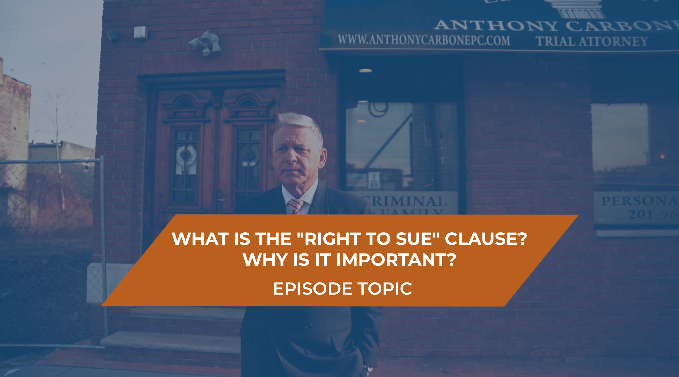
The “right to sue” is called the “verbal threshold,” the “no verbal threshold,” the “limited tort,” and the “full tort,” it’s different names for the same situation.
Here’s the situation. In New Jersey, if you want the right to sue for an injury that you sustained in a car accident, you have to buy that right to sue when you purchase your car insurance. If you don’t purchase the right to sue when you purchase your car insurance, you may be precluded from suing for non-economic damages. It’s really, really important that you understand the right to sue and you buy the coverage.
New Jersey believes that buying coverage is the same as if you purchase collision. If you want collision coverage for your car, you have to pay extra to the insurance company and buy collision coverage. Likewise, if you want the right to sue, you have to buy the right to sue from the insurance carrier.
Now what’s really critical is to understand that when you buy car insurance, nobody is going to ask you if you want the right to sue or if you want the limited right to sue, the full tort or the verbal tort, whatever they want to call it, because they don’t have to tell you under New Jersey law.
They give you a book. They give you a handbook and in that handbook, it outlines for you the lawsuit threshold, the no verbal threshold, the right to sue and all those terms are interchangeable. So they don’t have to tell you what your rights are. It’s simply in that handbook and they leave it up to you to read that handbook.
Now I’m practicing law for 33 years. I have been driving since I’m 17. I never read that damn handbook and I don’t know anybody who read that handbook. Quite frankly, I don’t think the author of that handbook read that handbook before he authored it. I don’t have one client who has ever read that. So it’s really important that you understand what your rights are and if indeed you’re going to be precluded from suing or from having a case for non-economic damages because you didn’t buy the right to sue.
If you have that question, call a lawyer. Ask a personal injury lawyer. Let them examine your policy and they will tell you.


